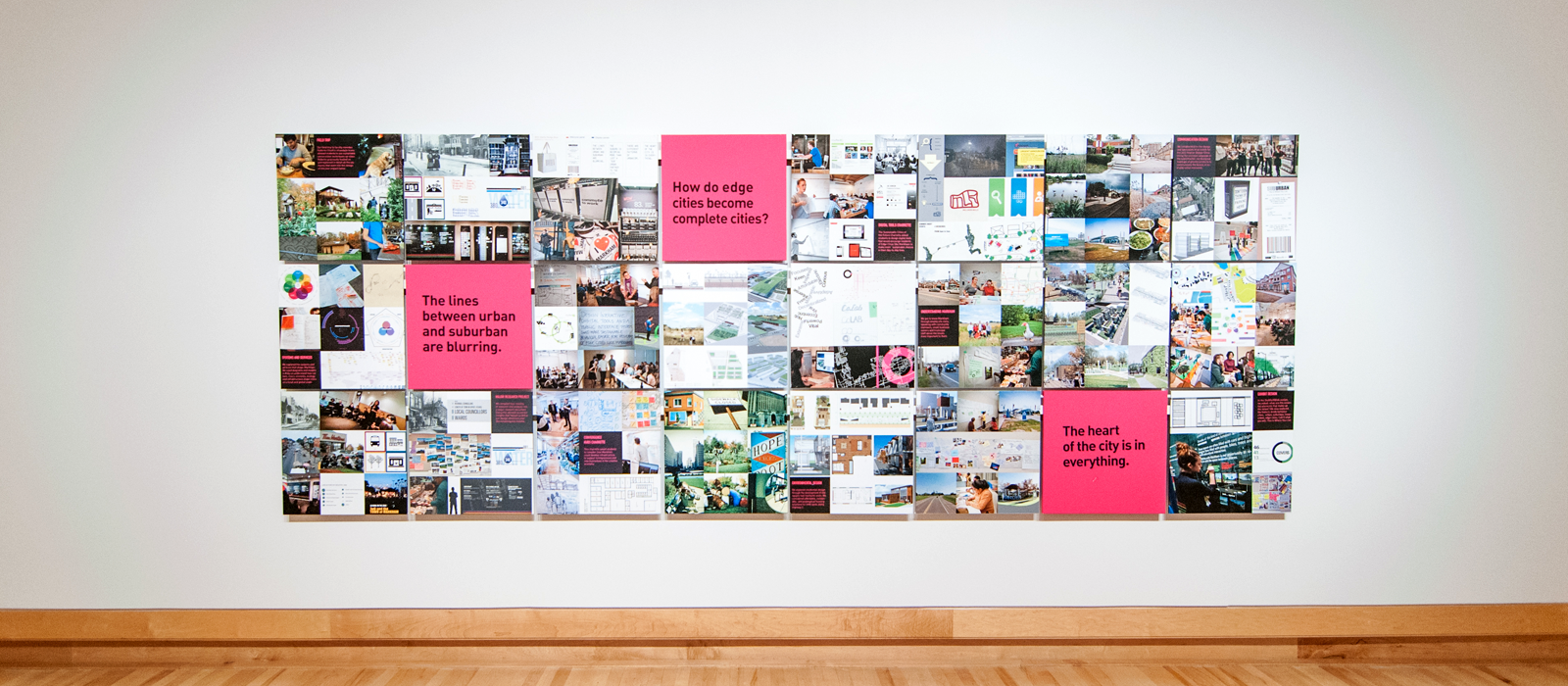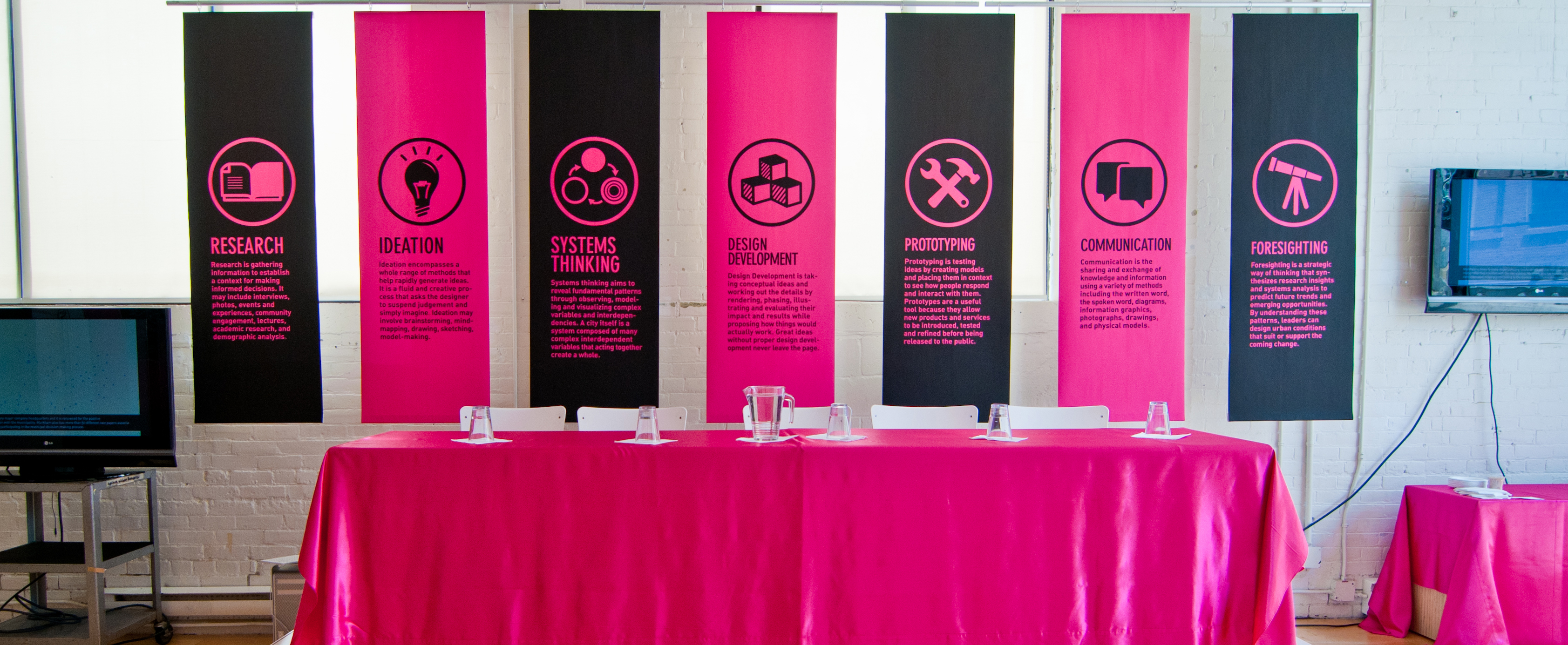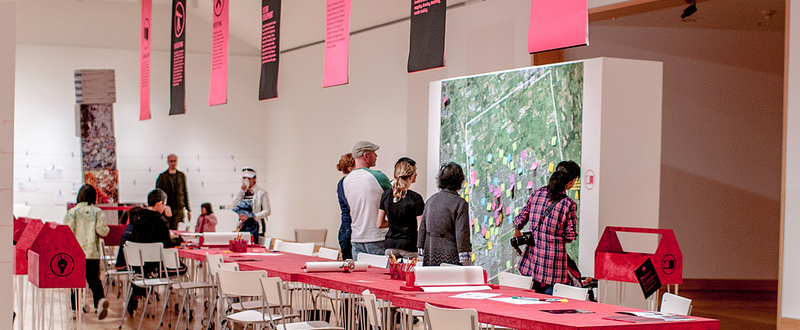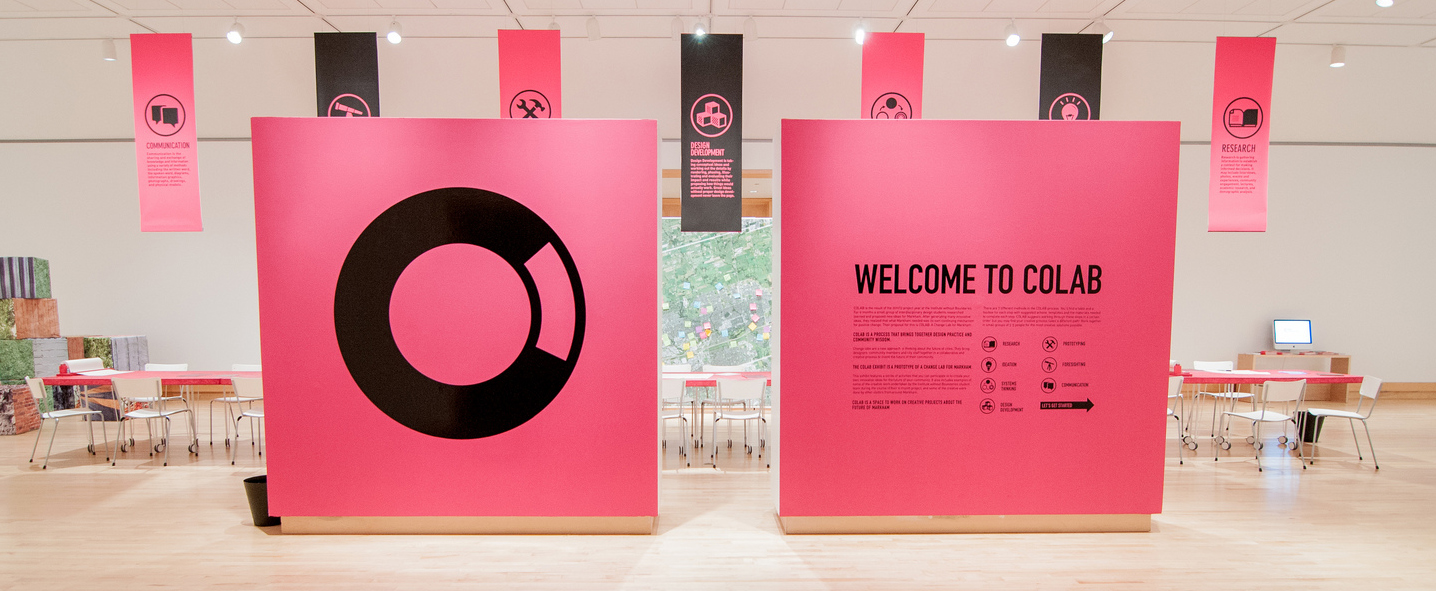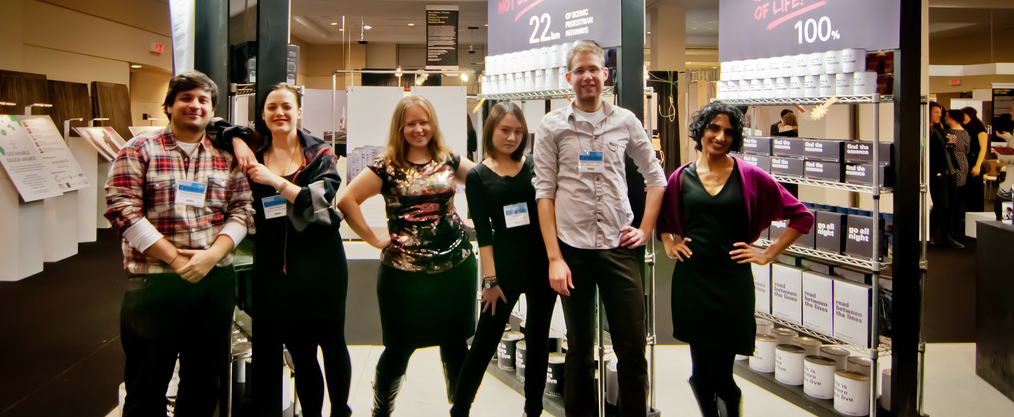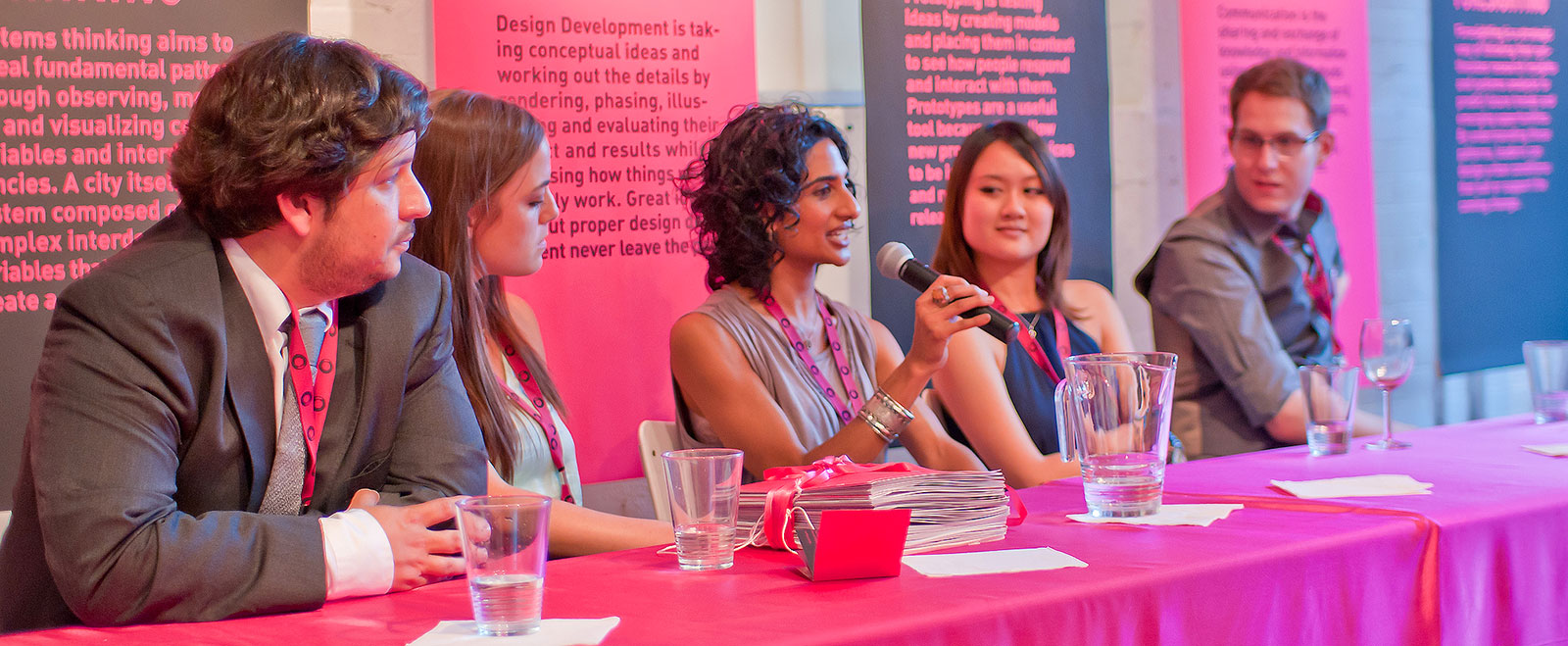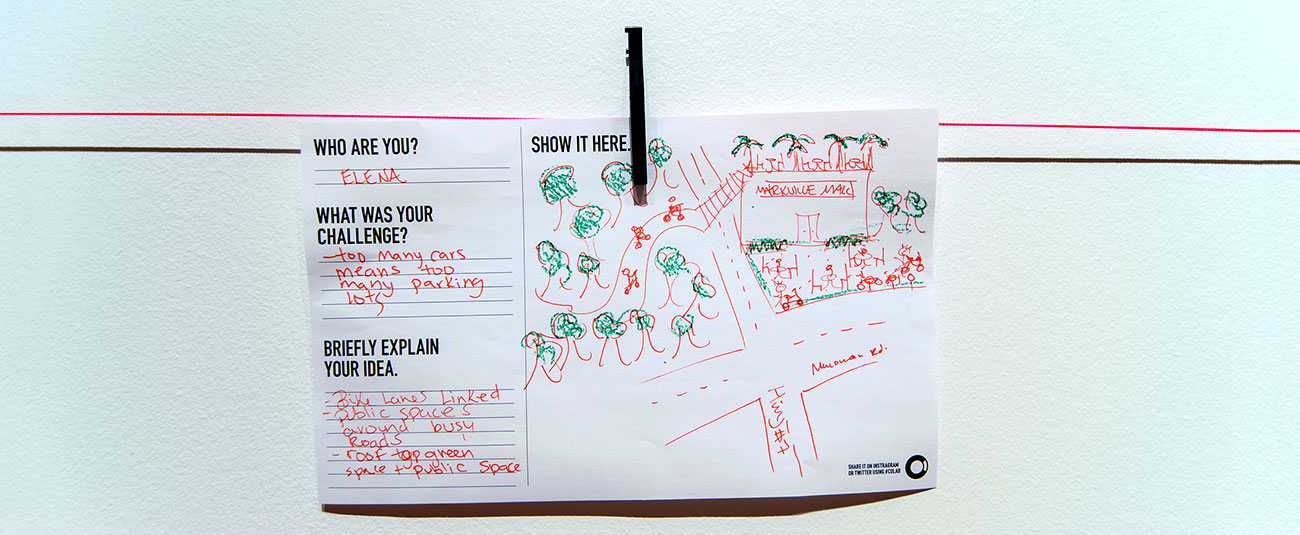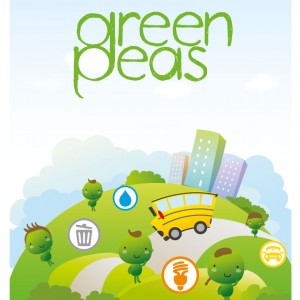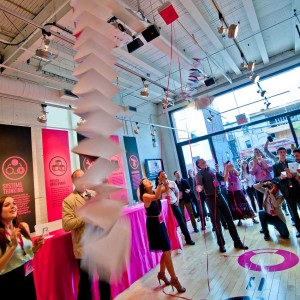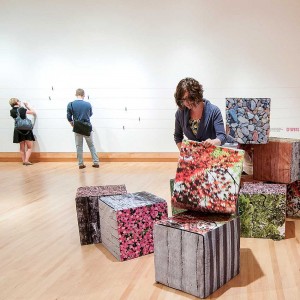Markham & COLAB
Overview:
During the third year of City Systems research, the City of Markham became a major project partner of the Institute. The partnership lead to a project that focused on building a change lab called COLAB that would encourage community building and engagement in Markham.
__
Every city has a need for a working space where the right teams could meet to address municipal identity and community building challenges over time.
Goals:
To evaluate Markham’s growth as a city and create community building resources and spaces needed to direct its future growth.

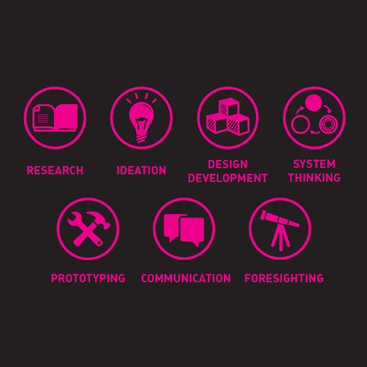
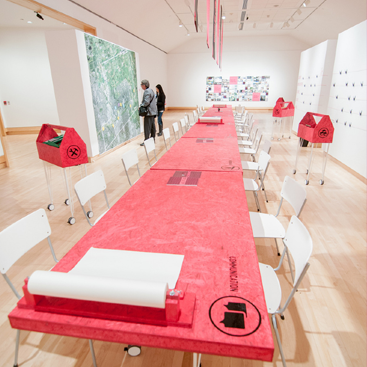
Markham & COLAB:
At the outskirts of Toronto, Markham is an ‘edge city’ in many respects, with homogenous residential areas, large distances, and little density to promote pedestrian culture. Markham has an incredibly diverse and growing population of more than 300,000 citizens, over fifty percent of whom are Chinese and South Asian, and many of whom are also new immigrants. The city holds a powerful position as a high tech capital in Canada and it has one of the best maintained historic zones in its Unionville district. Markham’s challenge as a city is that it lacks a strong sense of community. In this sense, it is an ‘incomplete’ city that needs to engage and bring together its citizens.
In 2011, during the third year of City Systems research, the City of Markham became a major project partner of the Institute. The IwB explored Markham’s municipal systems, and proposed design strategies and key interventions for Highway 7 and the other main streets of Markham. The IwB students generated ideas for infrastructure and service design improvements citywide to promote public pride and engagement in Markham’s public spaces. They considered alternative uses for parking lots and green fields; created tools to empower small business; identified and celebrated community landmarks; and defined creative industry hubs. The students made project proposals to restructure Markham’s main streets by enhancing accessibility, residential and commercial infill, and public infrastructure. All of the students’ proposals were well received by the city, but the implementation time would span well beyond the 9-month partnership between the IwB and Markham. Ultimately, the IwB realized what Markham needed most was a working space where the right teams could meet to address the city’s identity and community building challenges and develop proposals over time.
The IwB’s work became about demonstrating the usefulness and suitability of a change lab in Markham called COLAB, a physical space and working unity that could develop proposals for Markham on an ongoing basis. Change Labs are a new way of approaching the design and implementation of city and community projects that bring people together to solve challenges and imagine new ways to improve their community. Change labs like the Social Innovation Lab for Kent (SILK) in the United Kingdom and MindLab in Denmark have developed internationally showing the value that design thinking and strategy can add to urban challenges.
The students envisioned COLAB as an onsite and online project and an interdisciplinary design solutions unit for Markham that creates a space where the political, social, design, business, and technical forces of innovation can meet and be leveraged in a neutral space. COLAB would be an actual site for the meeting of Markham’s diverse stakeholders. It works by leveraging community, industry, and government and providing a neutral space for these entities to brainstorm, finance, and test solutions together. These networks provided the base understanding for the challenges facing Markham, and when synergized they created the best solutions to Markham’s challenges.
COLAB as well as several case study projects for proposed design interventions for Markham’s public spaces are outlined in the IwB publication COLAB: A Change Lab for Markham.
Project Outcome/Findings:
The IwB partnership took place at a crucial time during which Markham was redefining itself. In 2011, The City of Markham was still a township, and a rapidly expanding suburb of Toronto, but in 2012 it was officially recognized as a city. As Markham changed designation from town to city, the municipal government wanted to address business closures and a shrinking population due to youth moving to Toronto’s city centre. Markham realized it needed to be proactive to fuel economic and cultural growth that would attract people to their city and prevent young people in particular from moving away.
Markham had the resources but needed help to direct the city’s potential community growth. The City needed to direct the ‘softer’ and creative processes that could address the gaps in infrastructure and cultural planning in Markham. The IwB was able to bring in many tangible, creative ideas that resonated with citizens and city employees, but Markham needed a space where these proposals could be carried to fruition.
The COLAB project examines the various systems that make up the municipality of Markham and proposes new and innovative sustainable urban practices. It’s focus is the generation of new ideas that can be implement to revitalize the main streets of Markham and connect the city’s diverse citizens, the private sector and the municipal government. COLAB is a local entity that can grow with the city, and continue to serve as a space to confront its challenges.
COLAB as a pilot change lab for the city would enable implementation of new ideas and introduce an interdisciplinary perspective that could break the formula of everyday bureaucracy. It presents a way to invigorate government, by bringing in Markham’s other stakeholders and giving the municipality a creative outpost in which city officials and interdisciplinary design staff could meet and think through city problems together.
In addition to the proposal for COLAB, the IwB and the City of Markham collaborated on several other projects including an art exhibition about COLAB at the Varley Museum in Markham that was held from September to Ocotber 2012. The COLAB art exhibition shared some of the project work and insights gathered about Markham by the IwB, and also offered visitors the opportunity to try their hand at generating creative solutions for the future of Markham.
2011-2012 Markham & COLAB Project Year Highlights:
Sustainable Cities of the Future Charrette
October 2011
As a key part of the curriculum, the Sustainable Cities of the Future Charrette was the first event to look closely at the issue of sustainability in suburban environments.
The charrette was held from September 30th to October 4th, 2011 and brought together over 70 participants. The premise of the charrette was to broadly develop new programming and tools for Markham and other suburban cities to develop homogenous parts of its suburban character by promoting environmentally sustainable and digitally based public programming.
Find out more about this charrette and view the design proposals on the Sustainable Cities of the Future Charrette project page.
IwB SuperBar & (Sub)Urban
January 2012
A supermarket themed event and exhibition that showcased IwB’s 2011-2012 project. The exhibit used a grocery store metaphor to demonstrate shared urban and suburban experiences, blurring the lines between city and suburb.
Parts of the exhibition were showcased the School of Design Gallery space and at the Toronto Interior Design Show. See the Student IDS Booths project page for more details.
Main Streets of Markham
February 2012
The Toronto IwB International Charrette is the an annual IwB charrette event that brings together 200 plus students, faculty and industry experts from organizations around the world. The IwB hosts this major charrette each February, bringing together its project partners and various educational professional collaborators within its network.
In 2012, the Institute focused the international charrette around its partnership with the City of Markham. Teams of students from the IwB as well as several other universities around the world, competed to design new sustainable masterplans for 5 different main streets in Markham.
Creative Hubs
March 2012
An IwB charrette exploring social innovation in the suburbs that resulted in 10 different creative hub building designs for the City of Markham.
COLAB Book
June 2012
COLAB A Change Lab for Markham is the year-end publication about the Markham partnership, which features the IwB students’ proposal for COLAB a new model for the future change of the City of Markham.
COLAB Prototype, Varley Gallery
September to October 2012
The Institute’s collaboration with the City of Markham was extremely successful. After the end of the academic year, the City of Markham was interested in prototyping the COLAB concept and getting feedback from Markham citizens.
To this end, the City of Markham and the IwB collaborated on an exhibition at the Markham Varley Gallery showcasing the COLAB concept as a change-lab for residents to help tackle community design challenges.
Project Credits:
IwB cohort 2011-2012
City of Markham
Project Tags:
Markham, edge city, COLAB
Photo credits:
Michelle Hotchin
IwB cohort 2011-2012
“COLAB could introduce an interdisciplinary perspective that could break the formula of everyday bureaucracy. It presents a way to invigorate government and give it a creative outpost.”
–Asma Khanani Caporaletti, IwB alumna 2012/13
